All About Refinishing Engineered Hardwood Floors
So, can you refinish engineered hardwood floors? The answer to that question is “yes,” according to the Pennsylvania hardwood floor refinishing experts at Artisan Wood Floors, who say that it is one of the most common questions that they get in their line of work.
However, that “yes” comes with a qualifier.
Before you rent that floor sander, there are several things that you should consider before attempting to refinish your engineered hardwood flooring.
This article will review those considerations so that you can make the right decisions regarding refinishing your engineered hardwood flooring.
What is Engineered Hardwood Flooring?
Before discussing how to refinish engineered hardwood floors properly, it is important to take a step back and make sure that you understand exactly what engineered hardwood flooring is.
Engineered hardwood gives a look and the feel of solid hardwood flooring, but it is actually made of a thick hardwood layer bonded over a premium plywood layer. Engineered hardwood flooring offers strength and stability, is easier to install, and is far less expensive than solid hardwood products. Quality engineered hardwood wood flooring can last as long as 30 years. Make sure you invest in the top brands of engineered hardwood.
Engineered hardwood flooring is usually the best choice in high-moisture areas. Engineered hardwood flooring is the preferred choice in basements, below-grade spaces, bathrooms, and kitchens.
The top layer of your engineered hardwood flooring is the wear layer, which consists of a thin natural veneer which comes in various popular wood species. It is the layer that gives the product its beauty, and once your engineered hardwood has been installed, most people will be unable to tell that it is not solid hardwood.
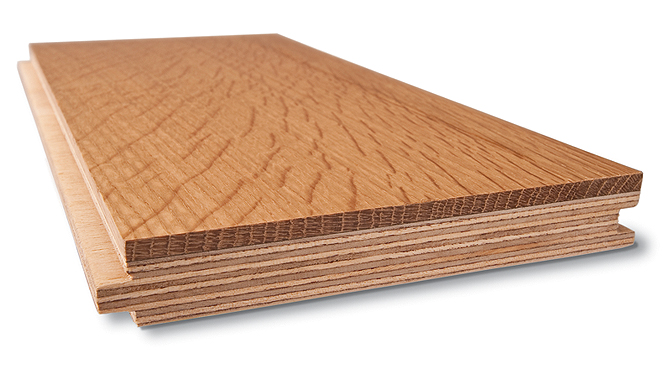
engineered wood plank floor cross-section
Refinishing Engineered Hardwood Flooring
As we mentioned at the beginning of this piece, it is possible to refinish engineered hardwood flooring. However, you must consider the overall thickness of that important top layer before embarking on a refinishing project. Are your hardwood floors thick enough to refinish?
A typical engineered hardwood flooring product will have a top layer thickness between 3mm and 7mm. Whenever you embark on a refinishing project, you must remember that the sanding phase of the process will remove 1mm of that layer.
Therefore, an engineered hardwood floor with a wear layer of 3mm can only be refinished twice in its lifetime.
The refinishing limits of engineered hardwood based on top layer thickness are as follows:
- Top Layer Thickness: 3mm Number of Refinishes: 2
- Top Layer Thickness: 4mm Number of Refinishes: 3
- Top Layer Thickness: 5mm Number of Refinishes: 4
- Top Layer Thickness: 6mm Number of Refinishes: 5
- Top Layer Thickness: 7mm Number of Refinishes: 6
As you can see, the number of refinishes will always be one less than the wear layer’s thickness. That’s because you never want to sand away the last 1mm of the top layer, as that would damage the floor.
Other Considerations when Refinishing an Engineered Hardwood Floor
Before embarking on your engineered hardwood floor refinishing project, you should always consider that any special texture or finish that exists now may be lost once you sand the top layer. That may include, for example, whatever oil finish, wire brushing, or hand-scraping that currently exists.
In other words, any textures or finishes will be sanded away when you refinish your floor. That can make the decision to refinish your engineered hardwood flooring a difficult one, especially if your floor has a cool texture or finish that you love.
Also, pay attention to any bevel or micro-bevel between the engineered hardwood floor planks. The purpose of any beveling is to mask any height differences between planks. This beveling exists on almost all pre-finished wood flooring products.
Depending on the bevel depth, sanding the floor can greatly reduce or eliminate the bevel completely. At this point, it comes down to personal preferences. If you prefer a grooved look, you may want to consider this before sanding the floor. If you like a more flush look across the floor, you might appreciate the effect sanding has on the existing bevel. Without beveling, an engineered hardwood floor tends to look more like a solid hardwood floor.
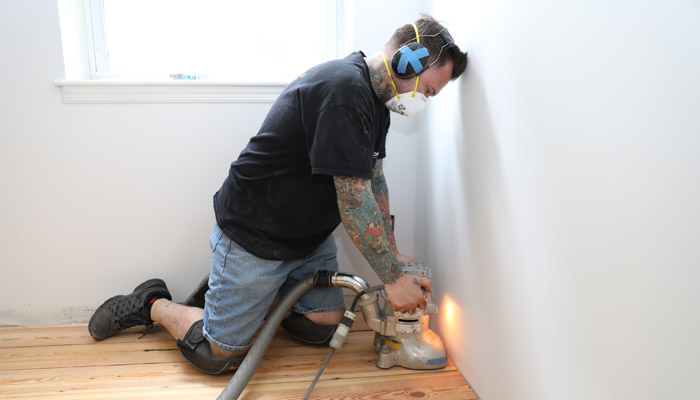
Hiring a Professional to Refinish Your Engineered Hardwood Floors
Thanks to the many advancements in engineered hardwood flooring products, it has never been easier to refinish engineered hardwood flooring on your own. However, when you hire a professional wood floor refinishing expert, you can ultimately save time and money by protecting your floors from the costly mistakes of a DIY engineered hardwood floor refinishing project.
If you are interested in learning more about how a professional Philadelphia wood floor expert can bring new life to your engineered hardwood floors or have other questions about engineered hardwood flooring products, contact the experts at Artisan Wood Floors LLC.
The PA wood floor experts at Artisan Wood Floors have decades of experience refinishing engineered hardwood flooring in Philadelphia and the surrounding area. Call 215-515-7355 and ask for Steve!
Recent Hardwood Flooring Projects in Philadelphia & NJ
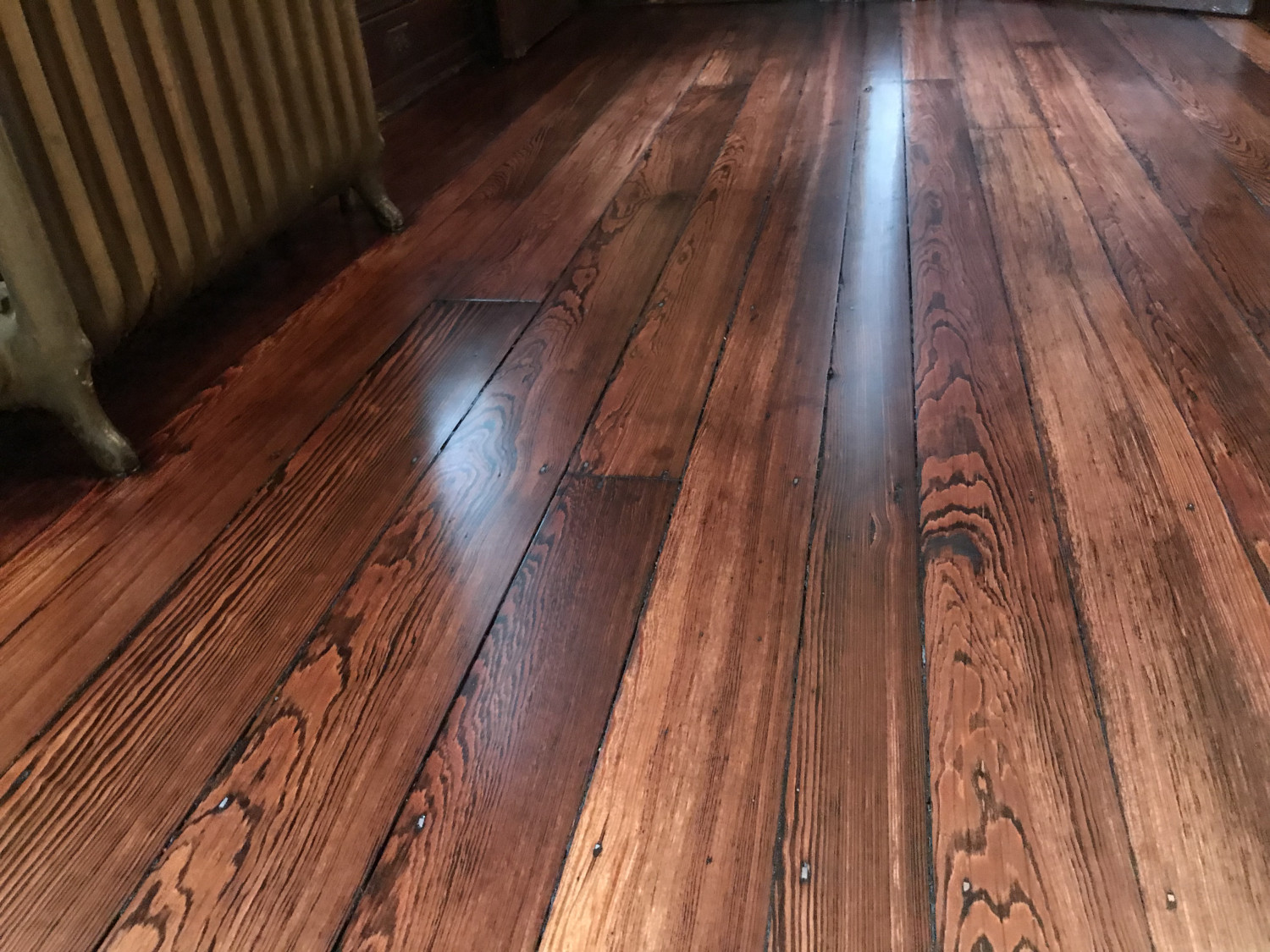
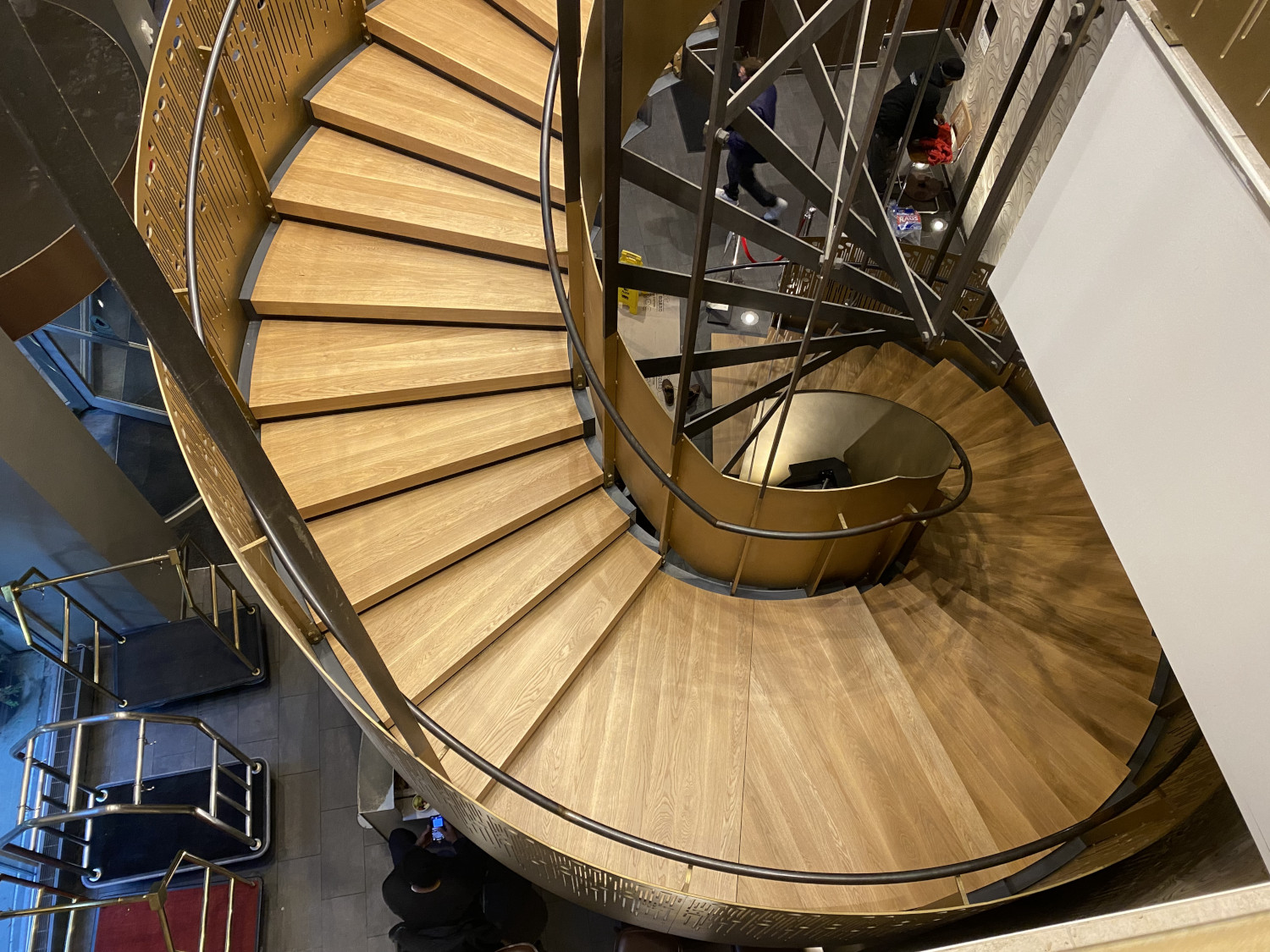
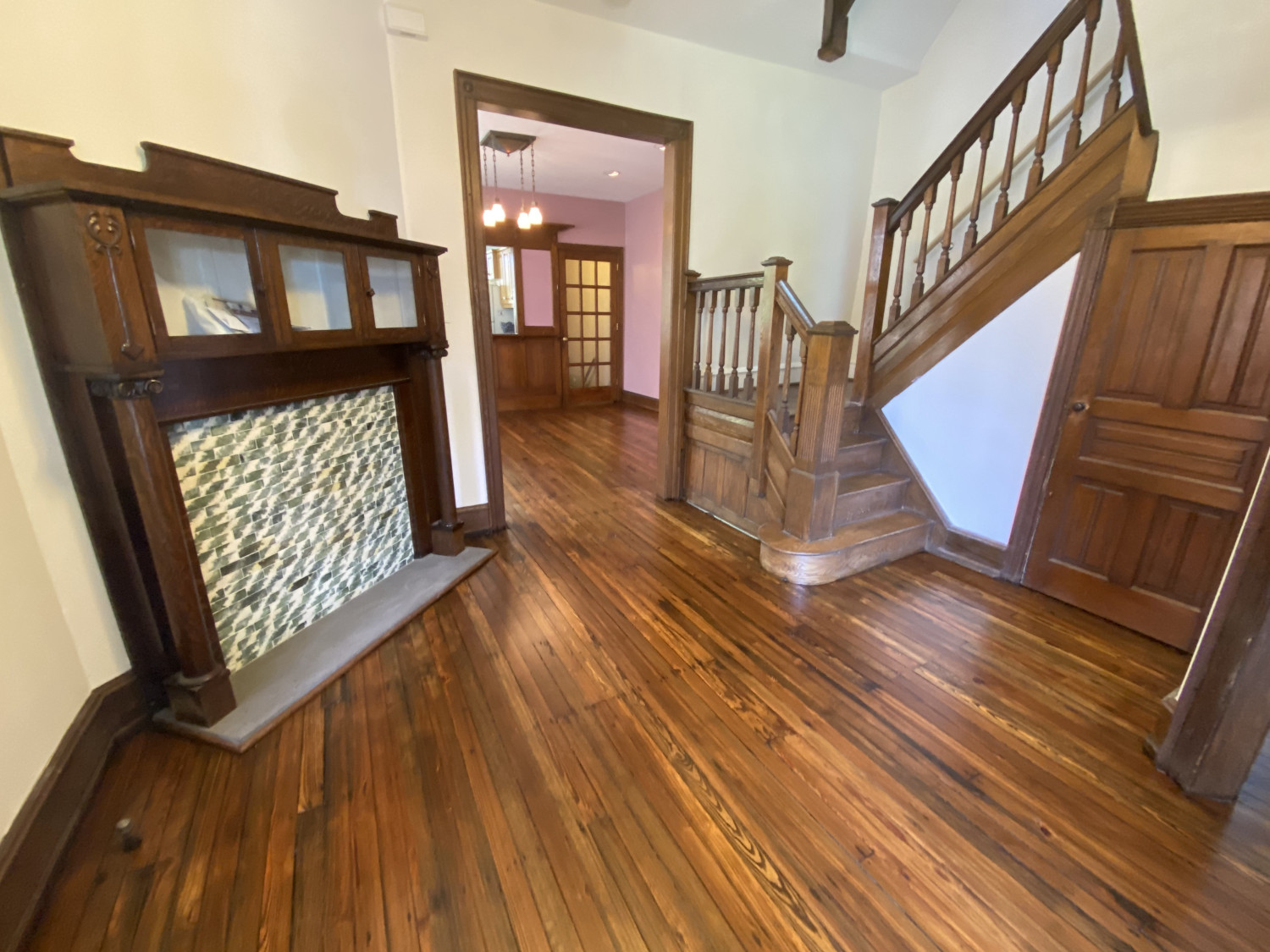

0 Comments